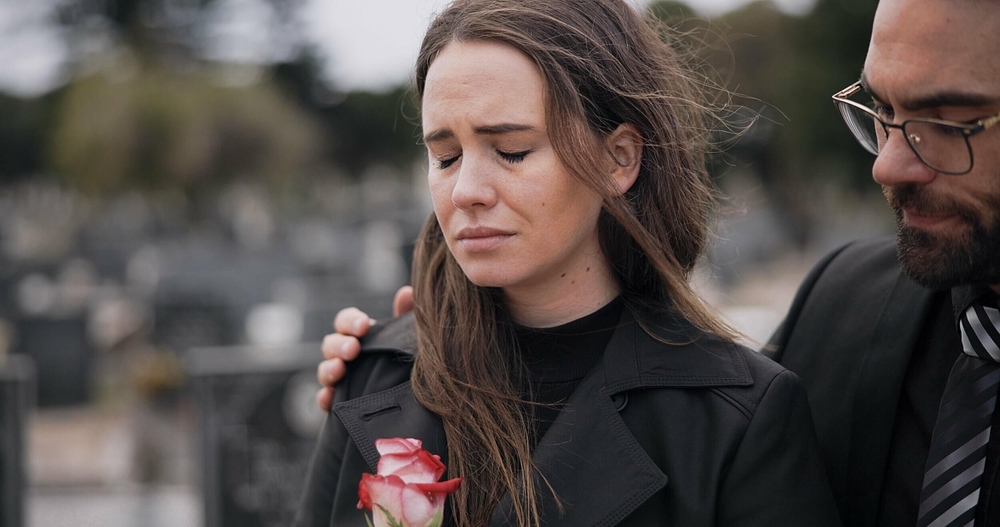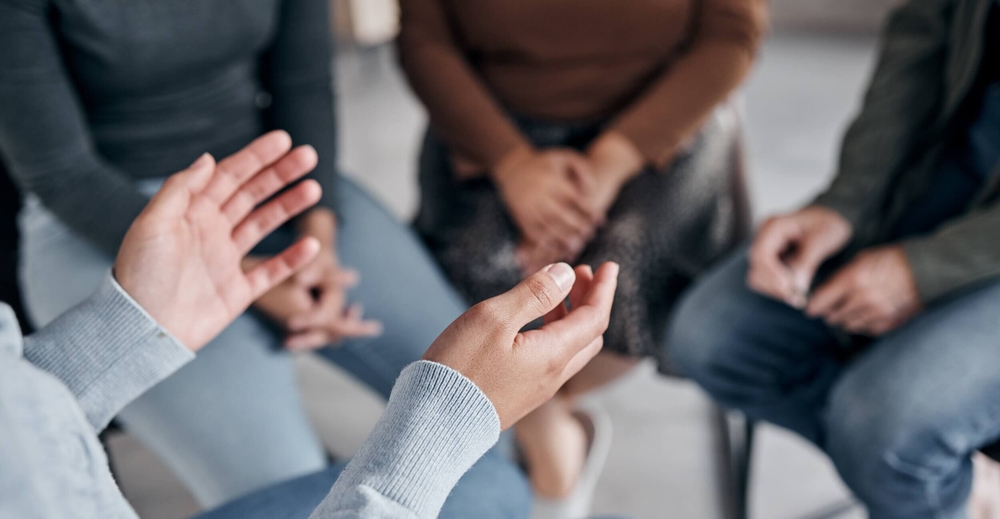Grief coaching is intended for anyone who has lost a partner or parent and receives a benefit from elipsLife.

Everyone has different needs when it comes to grief support.
Because grieving is a deeply personal process, we have developed three different support programmes.

Coping with loss is also known as grieving.
When you lose a loved one, time seems to stand still.
But gradually, the sadness and the loss need to find a place in your life.
The transition from your old life with your loved one to a new life without them — that’s what we call grief.
And grief is different for everyone.

Grieving can be accompanied by a variety of symptoms and complaints. This differs from person to person, because we all grieve in our own way.
That’s why you should never compare your grief to someone else’s.
There is no right or wrong when it comes to grief.
Common symptoms of grief include:
Loneliness
Sadness
Fatigue
Headaches
Reduced appetite
Difficulty concentrating

Grieving takes time. And it’s important to give yourself that time.
People around you may expect the grieving period to be over after six months. But that’s not true for everyone.
Grief is different for each person and often lasts several years. During that time, you move through different phases of mourning and alternate between dealing with loss and working on recovery.
Only when the sadness has found its place and you can think of your loved one without pain, can you say that you’ve come to terms with their passing.

Stage 1: Denial
A sense of numbness is common in the first days after a loss. Some people carry on as if nothing has happened.
Even if we know in our minds that someone has died, it can be hard to believe they won’t come back.
It’s also common to feel the presence of the person, hear their voice or even see them.
Stage 2: Anger
Anger is a completely natural emotion, especially after a loss.
Death can feel cruel and unfair — especially if someone died too soon or if you had future plans together.
It’s also normal to feel angry at the person who died, or at yourself for things you did or didn’t say or do.
Stage 3: Bargaining
When we’re in pain, it can be hard to accept that nothing can change the situation.
Bargaining means making internal deals — with ourselves, with a higher power — in the hope that it will ease the pain.
We often replay events and ask “what if…” over and over, wishing we could go back and change the outcome.
Stage 4: Sadness and Depression
Sadness and longing are what we most often associate with grief.
This pain can be very intense and come in waves over many months or years.
Life can feel empty and meaningless, which can be frightening.
Stage 5: Acceptance
Grief comes in waves, and it may feel like nothing will ever be okay again.
But over time, most people notice the pain softens and it becomes possible to accept what has happened.
We may never fully “get over” the loss, but we can learn to live again — while keeping the memories close to our hearts.
We offer three different grief support programmes.

You can start immediately with an introductory session with a grief coach.
The online conversation lasts around 30 minutes.
Together with your coach, you can then plan up to 6 individual online sessions.
You and your coach decide which topics to discuss — entirely at your own pace.
All grief coaches are psychologists registered in the BIG register.
This means they are listed in the Dutch BIG Act, which ensures the quality of healthcare.
Psychologists in this register have completed additional training after their university master’s degree.

You also have the option to attend a webinar.
Royal Doctors organises 4 webinars per year.
You’ll learn all about grief and how to deal with it.
Each webinar is limited to 10 participants, and you can join anonymously.

Several times a year, Royal Doctors organises in-person gatherings focused on grief.
During these days, you’ll gain deeper insight into the grieving process.
A grief expert is invited to share their perspective and experience, and different aspects of grief are discussed.
It’s a day full of valuable information and guidance on how to deal with grief.
You’ll also discover practical exercises to help you process your loss.
Each session is limited to 15 participants.
We’re here to answer your questions.
Below, we’ve done our best to answer the most common ones.
If your question isn’t listed, don’t hesitate to ask.

We utilize both our own cookies and cookies from carefully selected partners with whom we collaborate.
Take a look at our Cookie policy and our Privacy policy .